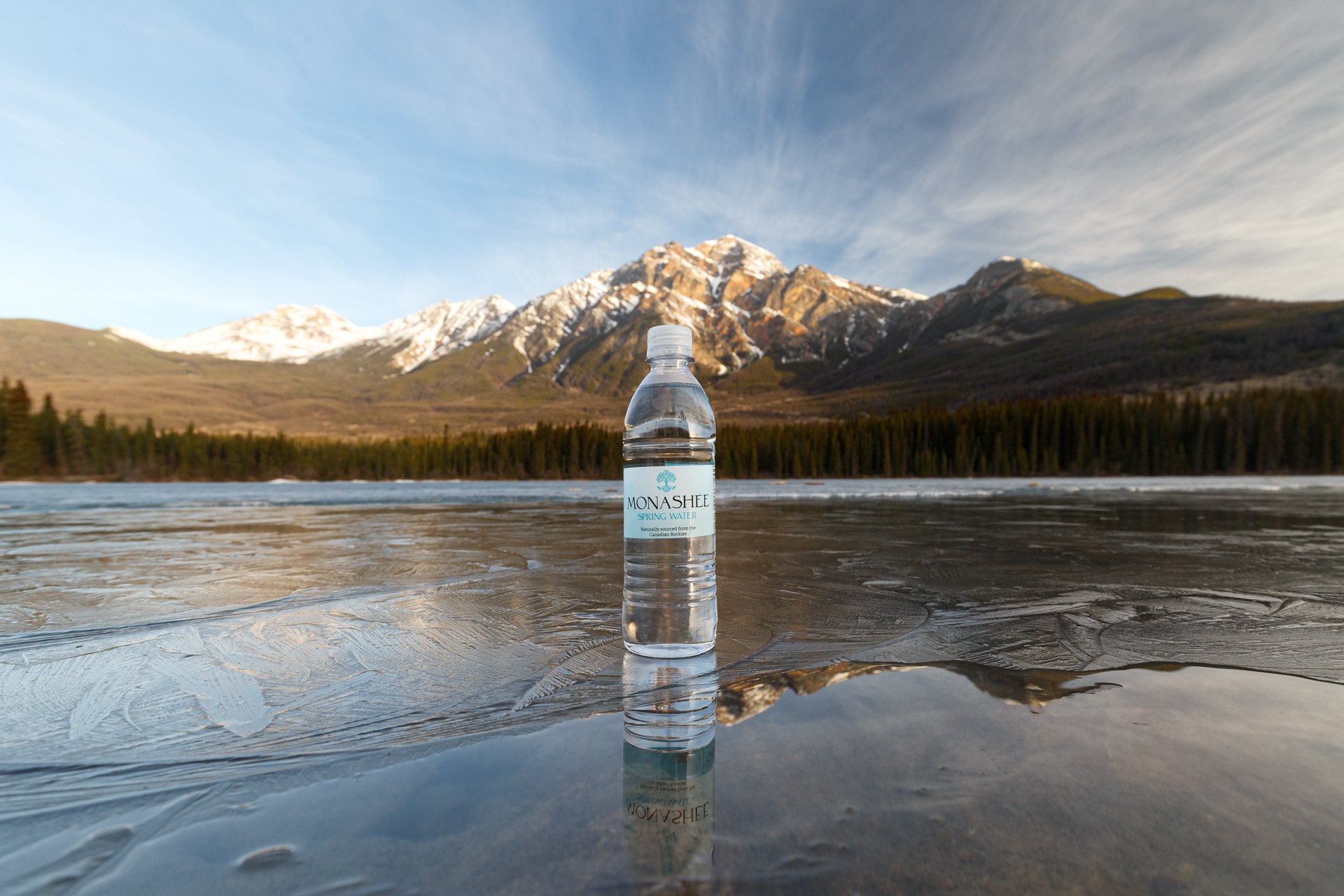
We Provide the best water for your body. Period.
Because our bodies are made up of 90% water, choosing the best water to hydrate your body is essential to your overall wellbeing.
Not all water is created equal, so here’s a quick overview of how they are different.
The different types of water
Purified Water
Ordinary tap water that has been treated so it is safe to drink.
Purified water is tap water that comes from lakes, streams, rivers or groundwater. It may be distilled, meaning that it has no mineral content, or treated by reverse osmosis, meaning that it has very low mineral content.
Spring Water
Water that flows from a naturally occurring underground source.
Spring water is fit for human consumption at it’s point of origin. It cannot be part of a community water source, nor can it be treated to modify it’s original composition. As a result, all of it’s natural minerals remain.

The Monashee water
difference
Monashee Water is true spring water. Our water contains no chemicals or additives, only essential minerals as natural as Earth itself. It’s also slightly alkaline, which many health practitioners believe helps balance your body’s pH and, as a result, combat disease.
Our commitment to you is to provide only the best water to help contribute to your health and overall quality of life. In assessments conducted by the Integrative Medicine Institute*, our water was confirmed to contain Ideal Values in tests of pH, mineral content and energy potential.
We were the only company out of 12 major water suppliers tested to achieve this standing. If you are interested in further information about this study, please view the complete results table here.
Dive Deeper
More information on spring & Glacier water
Life itself is possible because of water. Humans share the planet with countless other living organisms, and water is the one unifying factor among us all: Nearly three quarters of the Earth’s surface is covered in it, not to mention all the water found below the surface; it is present in the air in the form of vapour; it makes up 90% of the human body, and is found in the bodies of all plants and animals.
Being that it is one of life’s basic necessities, the average person might not put much thought into the water they drink on a daily basis. The truth is, however, that there are various different sources of water, and countless ways water is treated (or untreated) as well. All of these factors contribute to water’s quality, taste and healthiness.
A few examples of natural sources of water include rainwater, oceans, rivers, lakes ponds and, of course, springs. Because bottled water companies get their water from different sources, the quality of the water is going to vary greatly. For instance, in spring water, the mineral content can range from low end of the scale at 90 ppm, similar to Monashee’s Water, to over 300 ppm at the higher end of the scale. What we consider “soft water” is typically below 100 ppm, with “hard water” constituting anything above 100 ppm.
Another important factor in bottled water is the pH level. The pH scale ranges from 0 to 14, with 7 representing neutral: anything less is considered acidic, and anything greater is considered alkaline. Our bodies function the best when they are neither too acidic nor too alkaline. Unfortunately, most of us have become acidic due to a variety of contributing factors including diet, lifestyle choices like drinking alcohol or smoking, stress and environment. When acids build up in our bodies, it causes our body’s pH to be out of balance, and the only way our body can restore its optimal pH is by depleting certain minerals, such as calcium, magnesium and potassium, which are essential to the health of our organs and bones. Our body also naturally stores the acidic wastes in muscles and fats rather than releasing it into our bloodstream, causing a buildup that is truly toxic.
As you can probably tell, this is extremely dangerous for our bodies. Acidity not only negatively impacts our immune systems, but according to many doctors and health experts, can also be tied to conditions such as diabetes, arthritis and cancer. While we should still try to avoid acid-forming foods and drinks, drinking alkaline waters can really help with our overall health and well being as a means to combat acidity and restore our bodies to their optimal working condition.
Extensive water testing on many of the spring waters available today was done by the Integrative Medicine Institute in Calgary.
*Biological Terrain Assessment Evaluation of Water conducted using the guidelines and parameters established by Quantitative Fluid Analysis (QFA) ™ equipment manufacturer.
